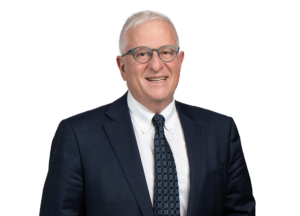As COVID-19 cases surge, medical regulators are taking swift action to ensure that drugs required to treat the virus are prescribed based on evidence, and that they remain available to patients who need them. A directive was issued this week from the Ontario Pharmacists Association, Ontario Medical Association, and Registered Nurses’ Association of Ontario, which can be found here. The Directive reminds medical professionals of their obligation to educate patients that treatments for COVID-19, like with any illness, need to be evidence based.
While there remains no cure for COVID-19, certain drugs are being tested as potential treatments for the virus. However, these drugs are also used to treat a myriad of other chronic, serious diseases, and the surge in prescriptions for these drugs is causing alarm to the regulators that medical professionals are stockpiling them, effectively causing a shortage to patients who rely on these drugs daily to treat other illnesses.
The drugs in question are hydroxychloroquine and azithromycin and their effectiveness in treating COVID-19 is not yet proven. Aside from potentially being used to treat COVID-19, hydroxychloroquine is used to treat malaria, rheumatoid arthritis and lupus. Azithromycin is an antibiotic for infections caused by several diseases, including pneumonia.
These drugs are not yet an approved treatment for COVID-19; yet physicians are prescribing these drugs for otherwise healthy patients to prevent COVID-19. What is curious is that these drugs are being prescribed together, which led medical professionals to question their surge in prescriptions and take action to thwart their misuse. Improperly prescribing these drugs and/or stockpiling them not only takes the drugs away from those who required them before, but threatens the supply for their use in the sickest COVID-19 patients.
A prime concern amongst medical regulators is that medical professionals are stockpiling the drugs to treat either themselves or their family and friends. This is in stark contrast to the core medical professionalism values and undermines the public’s trust in Canada’s healthcare system. As such, the College of Physicians and Surgeons of Ontario (the “College”) are acting quickly and will investigate complaints about doctors prescribing these drugs to friends and family.
As well, the College’s swift action will help ensure that patients who need the drugs for other diseases will have access, and therefore not put unneeded strain on the healthcare system to deal with the consequences of patients with other diseases not being given the proper care.
Actions Physicians Can Take to Ensure Proper Care During COVID-19
Physicians are reminded to:
- prescribe treatment that is evidence-based;
- refrain from treating family members, especially when treatment is not evidence-based;
- avoid conflicts of interest;
- contact counsel if you are contacted by the College or are under investigation. You will need advice as to how to navigate these issues, especially during this unprecedented time.
Fogler, Rubinoff LLP’s Health Law Group is on top of these developments and is here to assist you on an urgent basis. If you have questions about your practice, please contact a member of the Health Law Group.












